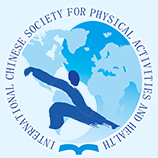Document Type
Abstract
Publication Date
2-2024
Abstract
Purpose: Extended periods of desk-based study in schools often result in diminished attention and reduced learning efficiency among students. This study aims to investigate exercise methods and implementation approaches that can enhance the attention and academic performance of primary school students. Methods: This study randomly selected 90 students(44 in the experimental group and 46 in the control group)from two classes of Grade 3 in Shenxhen Yantian Foreign Language primary School Donghe Branch. The students from the experimental group received two rounds of 12-week 10 minutes of micro-exercise every day. The attention index (D2) and the academic performance (Chinese, Math, and English) of the experimental group and the control group before and after the experiment were compared and analyzed. Results: Before the experiment, there was no significant difference between the experimental group and the control group. After the experiment, there was a significant difference in the attention index between the experimental group and the control group (tTN=7.274, PTN < 0.01). There was a positive correlation between students' math performance and attention index of the experimental group before and after the experiment (rE1=-0.413, PE1= 0.005 < 0.01; rE2=-0.423, PE2=0.003 < 0.01). Conclusion: The current research indicates that incorporating ten minutes of micro-exercise between classes can activate students' attention systems, enhance attention processing speed, and elevate overall attention levels. Consistent implementation of micro-exercises during breaks has been found to enhance students' computational skills, logical thinking, and other cognitive abilities, leading to improvements in their academic performance, particularly in math. The sustained use of micro-exercises between classes emerges as an effective strategy for cultivating students' attention levels and boosting academic performance.
DOI
https://doi.org/10.18122/ijpah.3.1.26.boisestate
Recommended Citation
Jiang, Wei; Lei, Fenghui; and Huang, Jieyi
(2024)
"A89: Experimental Study on Effects of ‘Micro-Exercise’ on Pupils' Attention and Performance,"
International Journal of Physical Activity and Health: Vol. 3:
Iss.
1, Article 26.
DOI: https://doi.org/10.18122/ijpah.3.1.26.boisestate
Available at:
https://scholarworks.boisestate.edu/ijpah/vol3/iss1/26
Included in
Exercise Science Commons, Health and Physical Education Commons, Public Health Commons, Sports Studies Commons


